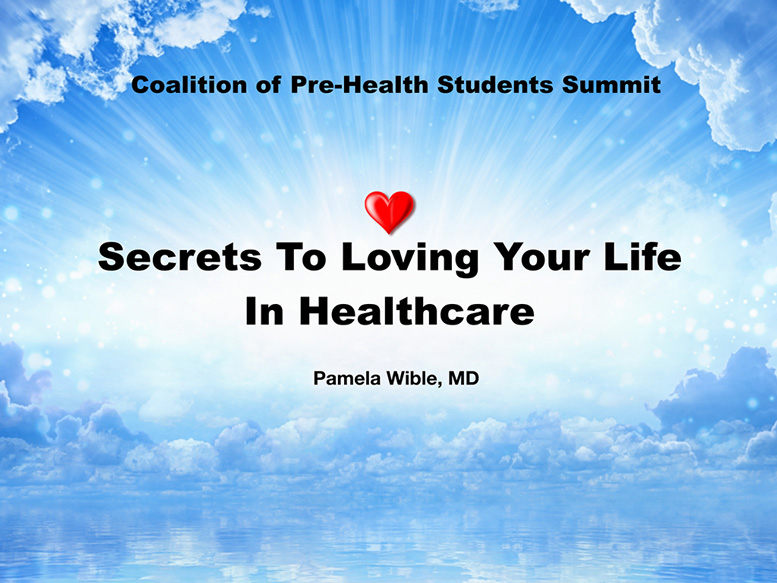
Enjoy the keynote I delivered today at University of Pittsburgh for the Coalition of Pre-Health Students Annual Summit. Listen in to full audio (and enjoy edited transcript with slides below):
Lindsey Gorman: Dr. Wible is a family physician born into a family of physicians. She actually was encouraged by her parents not to go into medicine. Here she is as a physician now. When not treating patients, Dr. Wible devotes her life to medical student and physician suicide prevention. She runs a suicide hotline and hosts retreats for depressed and discouraged medical students and physicians for which TEDMED has named her the “Physicians’ Guardian Angel.” Today she will talk more about her work in suicide prevention in the healthcare field and will be providing everyone free copies of her book—Physician Suicide Letters—Answered.
Dr. Pamela Wible: Welcome! Today I’ll share the secrets to loving your life in healthcare. Doesn’t that sound great? First, lets show some love for the Coalition of Pre-Health Students Board Members. Let’s give them a hand!
Given today’s theme of interprofessionalism, the biggest thing that we can do to create more cohesion and team spirit in healthcare is to use language of unity so we can relate to one another in a respectful, honorable, loving way. So who are we? Whether we are planning a career in dentistry, nursing, medicine, psychology, public health—we are all officially health professionals or pre-health professionals. I personally love the word healer for those who want to help and heal others. I also love the word healer because it encompasses spirituality (and I’m a very spiritual person).
Here are some words to avoid (not a comprehensive list). These words tend to piss people off: prescriber, practitioner, midlevel, provider. if you ever call a doctor a provider you may infuriate them. I want to share exactly why we should avoid using these words because they are often used by NON-health professionals to label and devalue health professionals—often as economic units. These non-health professionals are making a nice passive income off of dictating what health professionals do. So they want us to be prescribing a lot so that we’re making them a lot of money. They want us to be providers so we are pushing people through like widgets on an assembly line. So for economic reasons people who are non-health professionals are forcing these terms on us. And these terms devalue who we are (because your diploma does not label you are a provider, it displays the title doctor or veterinarian). And you know you worked hard and have the student loans to prove that you earned this degree. I don’t want you to be devalued as an economic unit based on how much revenue you can generate per millisecond for someone else. Midlevel is a term used to devalue NPs and PAs who don’t want to feel that they are delivering midlevel care (as the term would imply). Let’s honor each other by using proper titles.
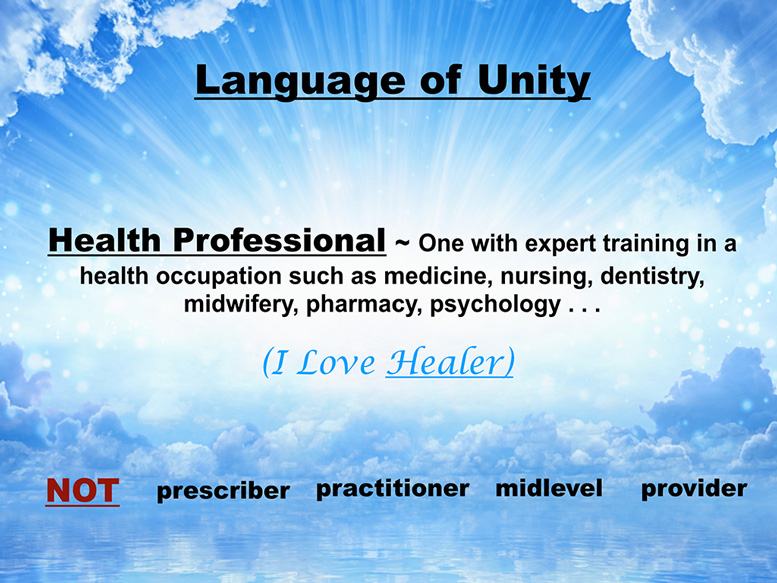
To be very clear I want to share an article that touched a lot of nerves online. A blog post by a physician out of Washington. Her name is Dr. Niran Al-Agba. A number of Jewish physicians actually shared this with her and encouraged her to address the origin of the word provider—first used by the Third Reich used to devalue Jewish physicians.
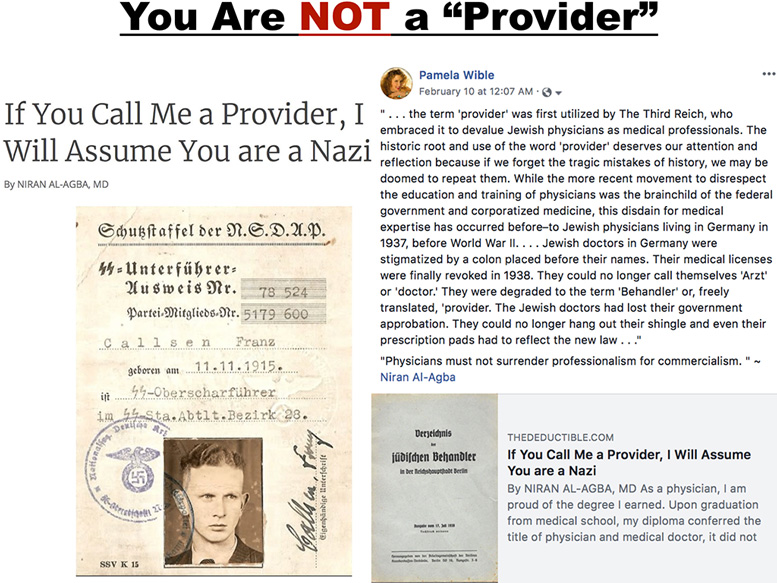
So as we come together as a group today we must know who we truly are—and who we are not. Now I’d love for you to reflect on this question: If you could be anything, what is your big dream? The big dream you have in healthcare? And how old were you when you decided you wanted to pursue this dream? And what’s your motivation? Before you amass hundreds of thousands of dollars of student loans, I want to make sure you are on the right path.
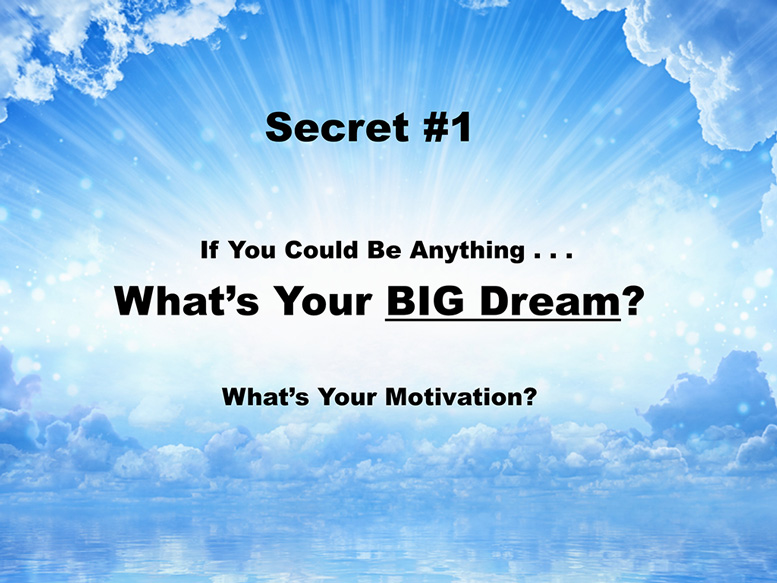
I just spoke to a student just before my talk. He told me he wanted to become a neonatologist. I asked him why. He explained that his friend had two preemies and couldn’t drive so he used to take her back and forth to the hospitals to see her newborns in the NICU. He learned about placenta previa and what could go wrong during a pregnancy and so that inspired him to go in a direction—that may or may not be the right profession for him.
Some students decide they want to work in the emergency room as a physician or nurse due to some TV show they watched as a child. The average age here in the room today is 19 I was told (except for a few physician friends of mine in the front row that may be skewing the numbers). Most of you don’t have to think too far back to what inspired you to pursue healthcare.
I’m going to help each one of you in the breakout sessions understand whether you are on the right path and give you some tips and tricks (and maybe some mentors) to make your educational process easier.
So here I am, usually a very happy person, but when I look at this photo I realize that I am trying really hard to smile and I remember feeling like I survived some kind of war zone battlefield experience—called medical school.
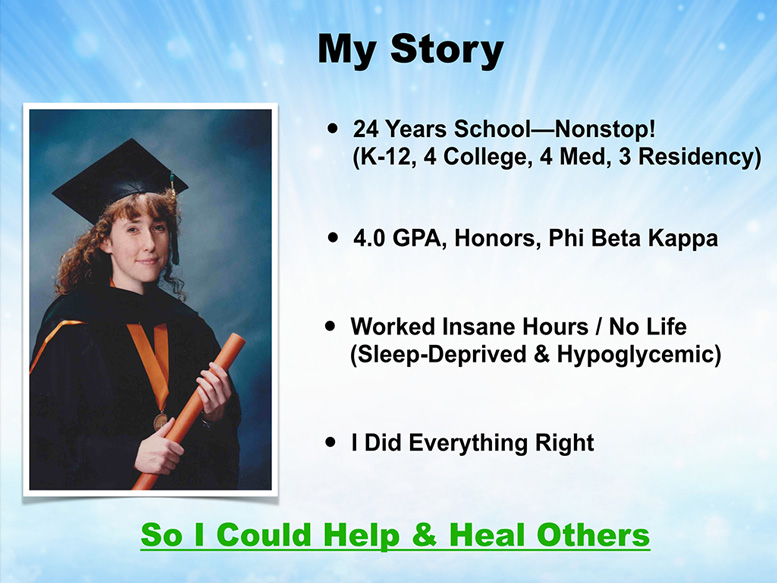
I did everything right so I could help and heal others. I selflessly put myself behind the needs of others. Does that make any sense? Rethink putting others needs ahead of your own. In order to serve others to your fullest most resourced potential, you actually need to eat and sleep and go to bathroom and be thinking clearly yourself. If you are hypoglycemic and dehydrated and sleep deprived you may not be making the right decisions for that preemie infant who depends on you to be sharp.
Here’s how I felt after my medical education—my life sucked!! Here’s a little art project I did to describe how I was feeling trapped in a big-box clinic. I went to work with my physician parents as a kid and I knew what a real doctor was—not someone trapped in a big box pushing patients through every 7 minutes on an assembly line. Who could be happy in a cardboard box full of embezzlers who are running away with the money you are generating every 7 minutes and you are too busy to police all the criminals in the building! You don’t even have time to go to the bathroom or eat.
By the way, I tried several jobs (6 jobs in 10 years) and they were all big cardboard box assembly-line clinics, Terrible.
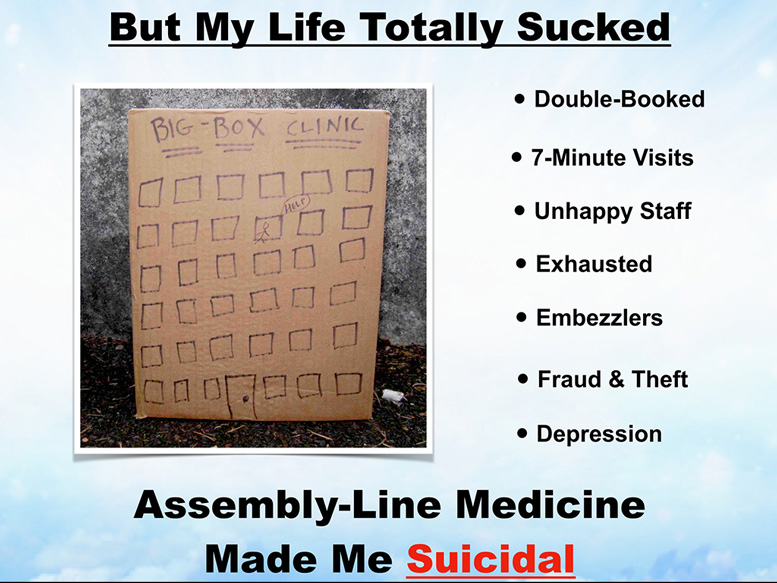
I think we can all agree that it’s impossible to provide care to humans, cats, dogs, parakeets—in 7-minute increments. Unsustainable. Dangerous.
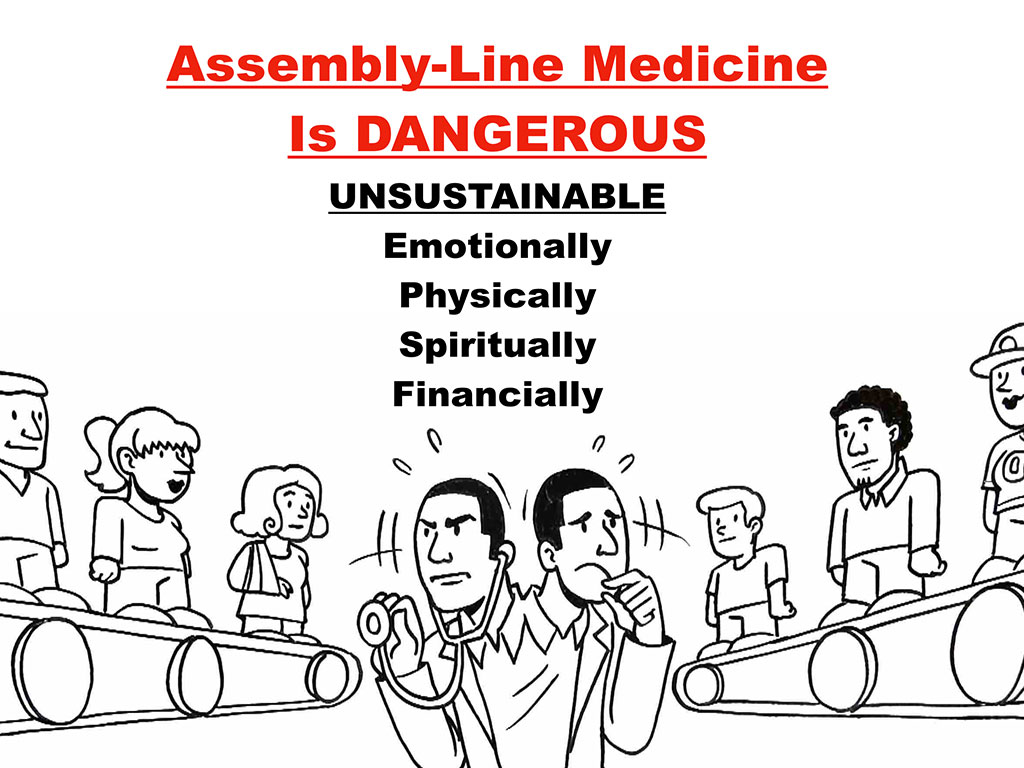
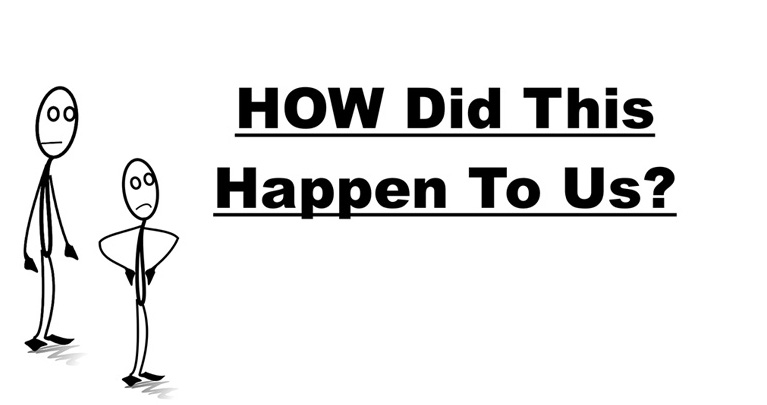
Here’s how I feel about my medical education, I’m sure this also happens in nursing and veterinary school and other programs too so just know that I’m talking about you as well here even if you are not medical school bound. I did love my my family medicine residency program because I selected it based on a strong behavioral health focus. So I kind of feel like I had a mini-psychiatry residency too.
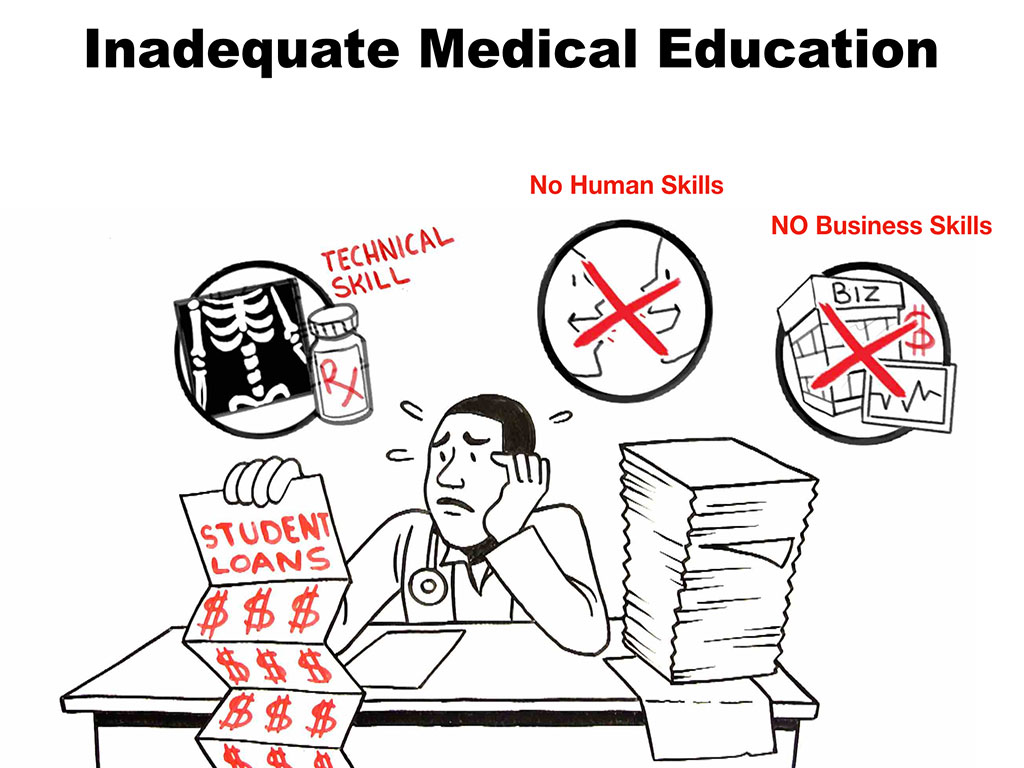
So here are your choices with the technical skills that you’ve learned. What assembly-line do you want to work on?
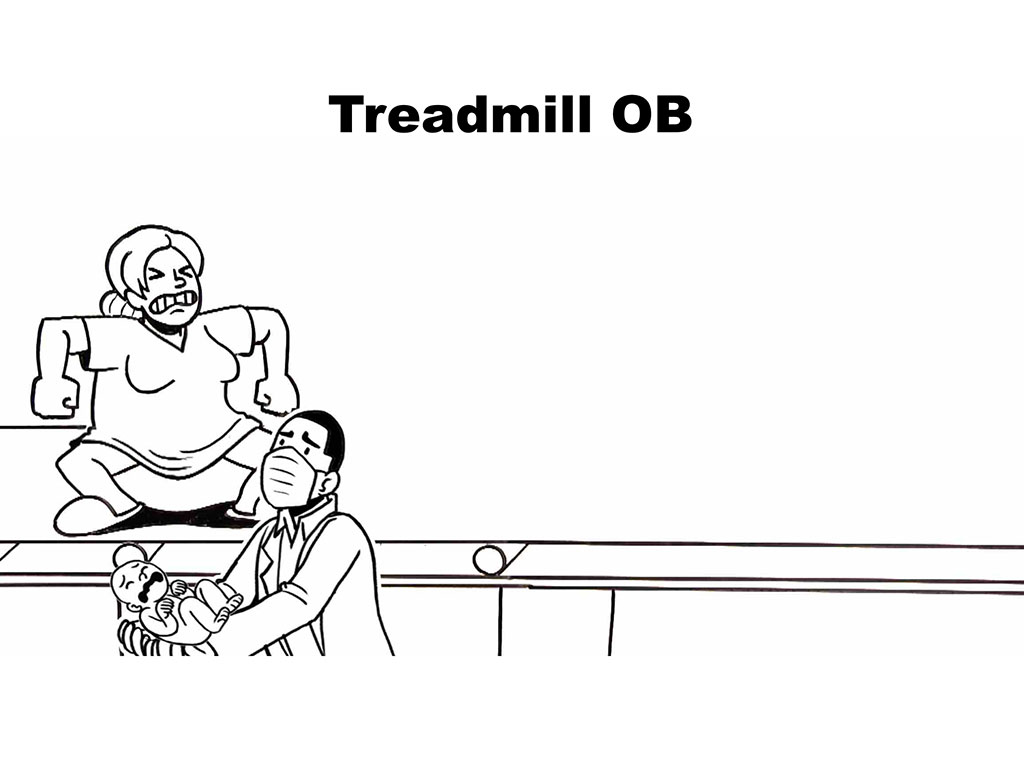
The beauty of the birth of a baby is lost when you are having to work on an assembly line and don’t even know the mother’s name.
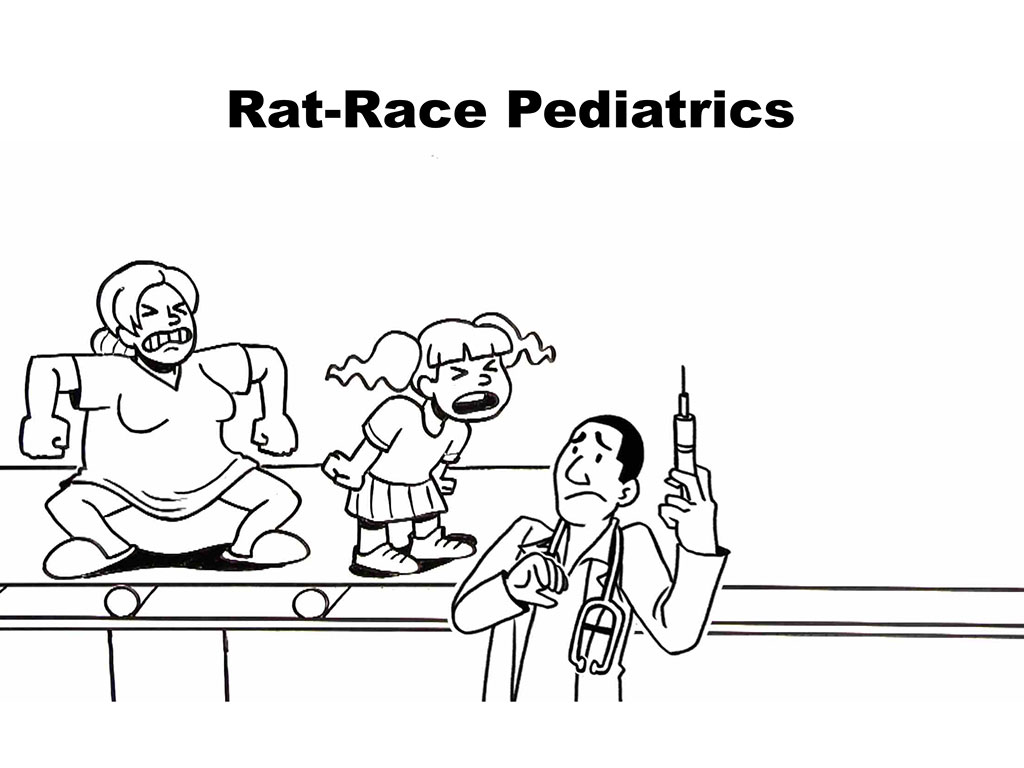
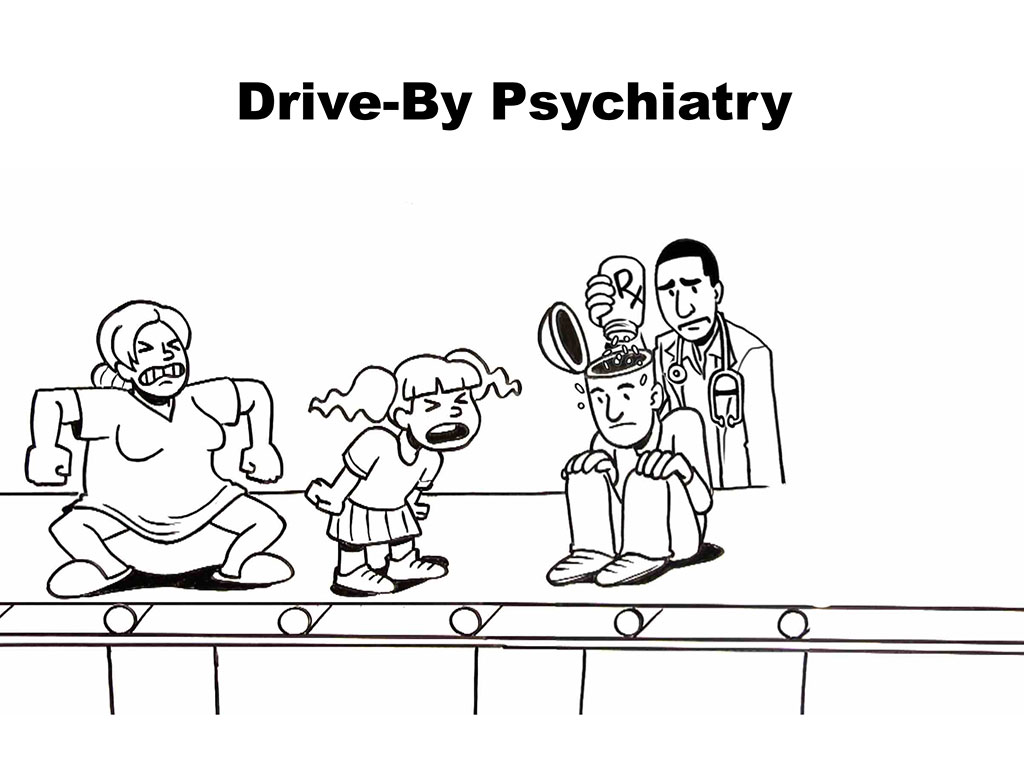
Here’s why we have so many mental health problems in this country. People with legitimate mental health needs are getting drive-by psychiatry. As real health professionals we must put an end to this insanity.
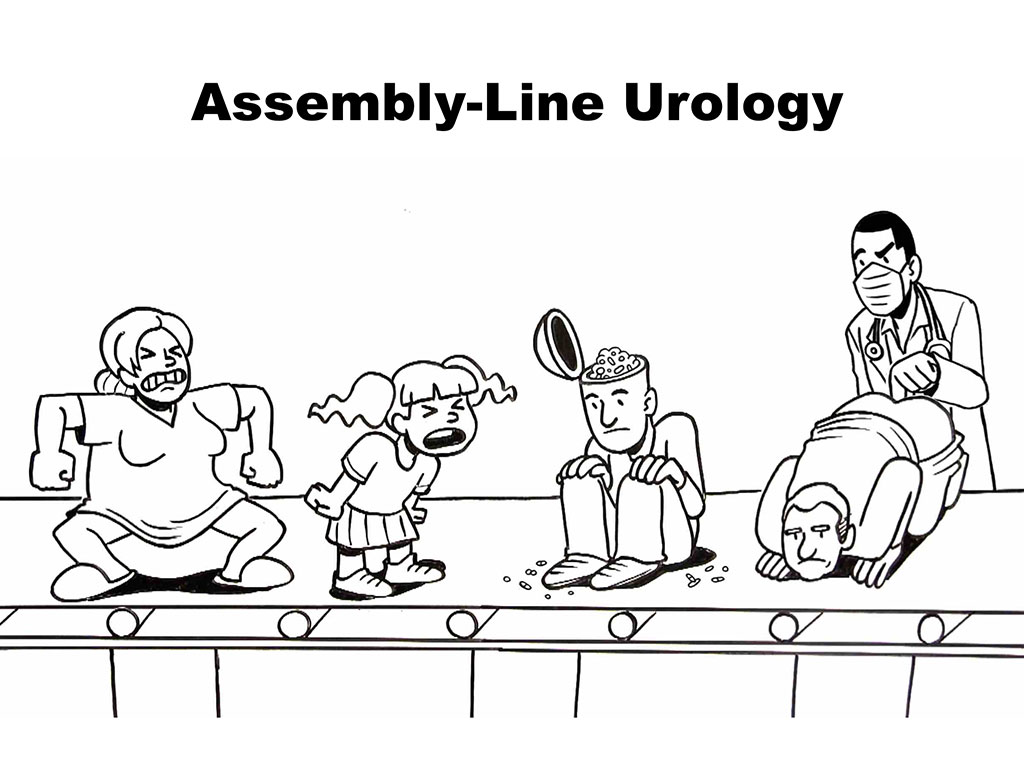
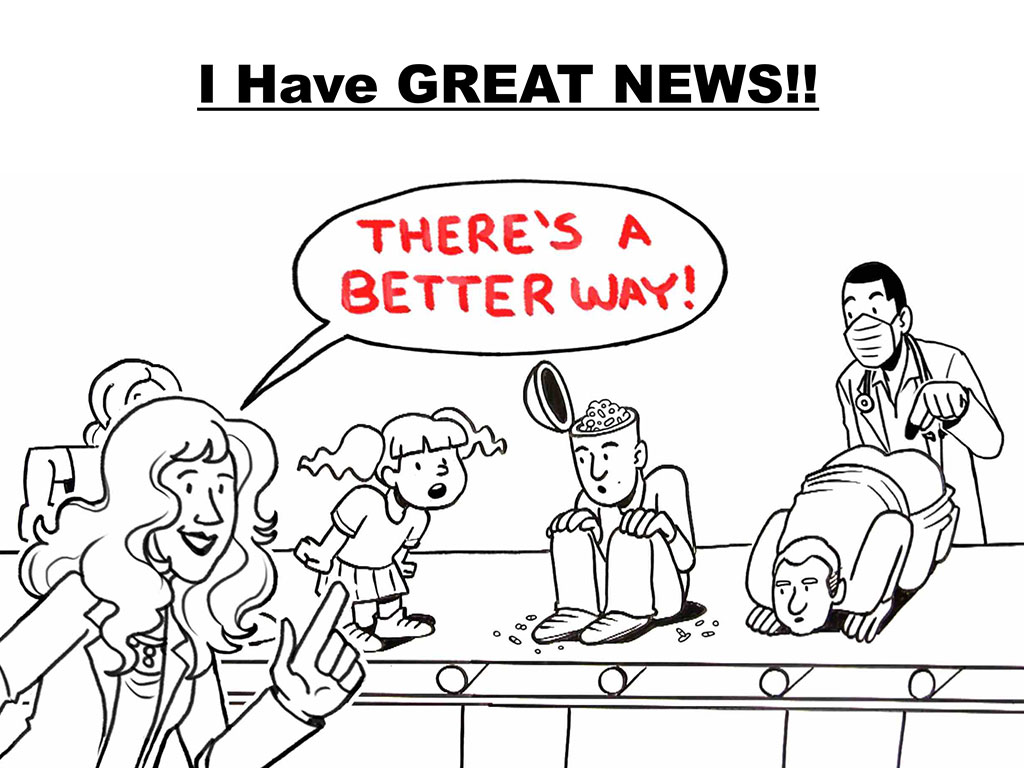
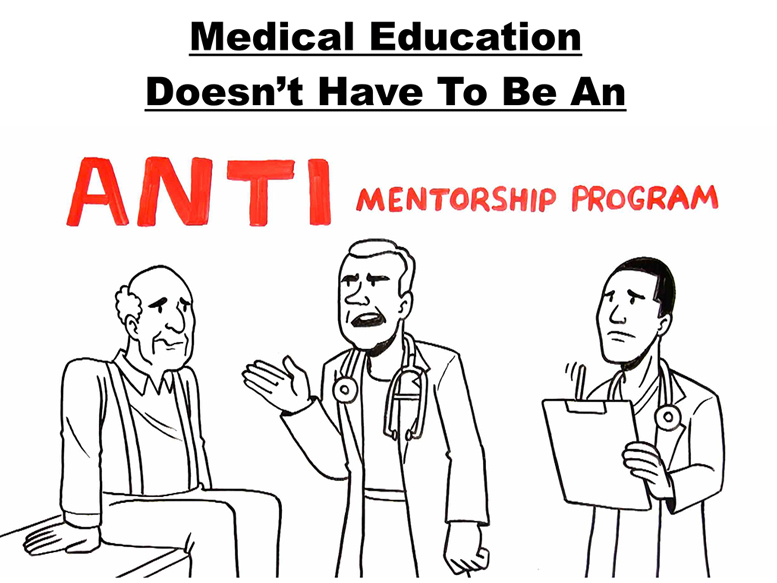
I define an anti-mentorship program as an educational experience where you meet a lot of people you would never want to become.
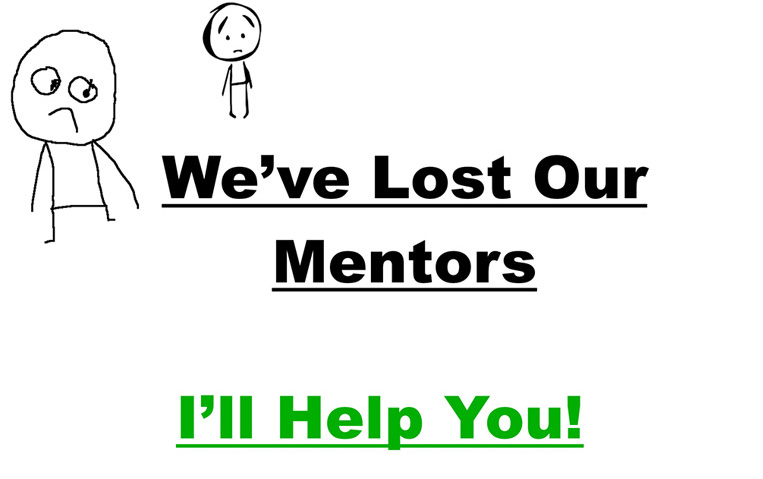
Our mentors have been victimized by the same system that’s getting ready to victimize you so you can’t really get mad at them. They used to be bright-eyed and bushy-tailed nineteen-year-olds when they started and now look at them—exhausted and not truly fulfilled (and many hiding under fake smiles and starched white coats).
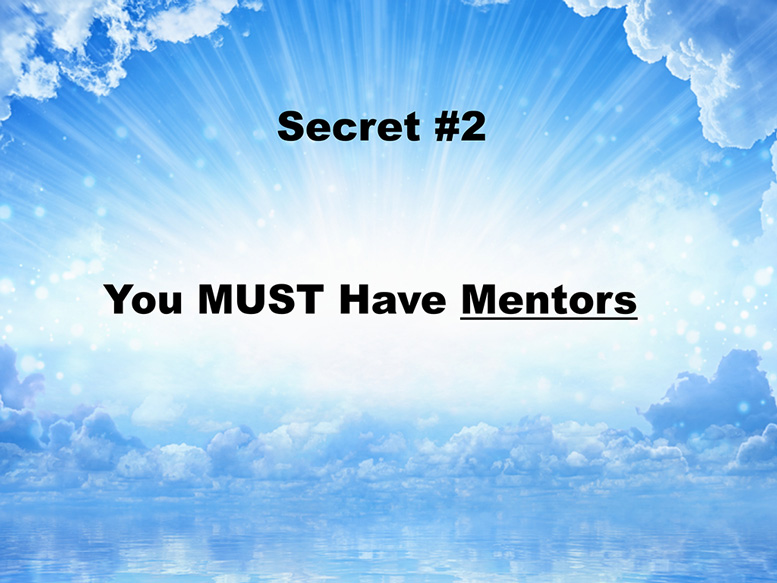
Explore, Meet people! You are so young, You have your whole life ahead of you. Don’t get rigid and fixed to one idea. You don’t want to prematurely limit your options. And avoid accepting “assigned mentors” because they may not be ideal—kind of like an arranged marriage. Could work out, but may not be any love there. You just never know.
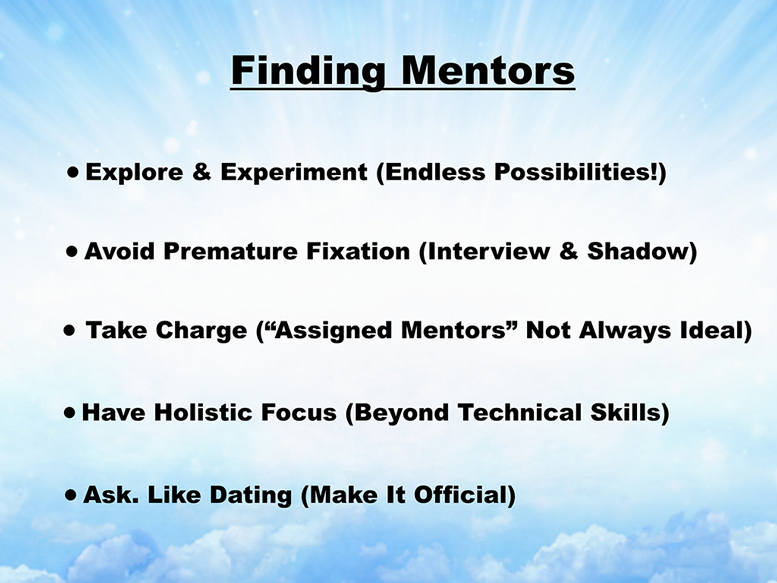
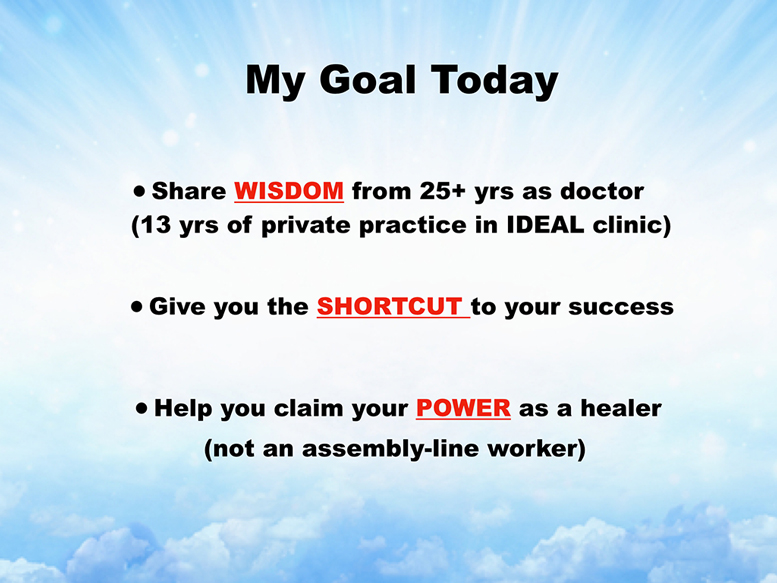
By the way, I always thought it would be fun to be a cheerleader or on the pep squad or something but I was always studying. So now I’m in cheerleader formation with a group of doctors!
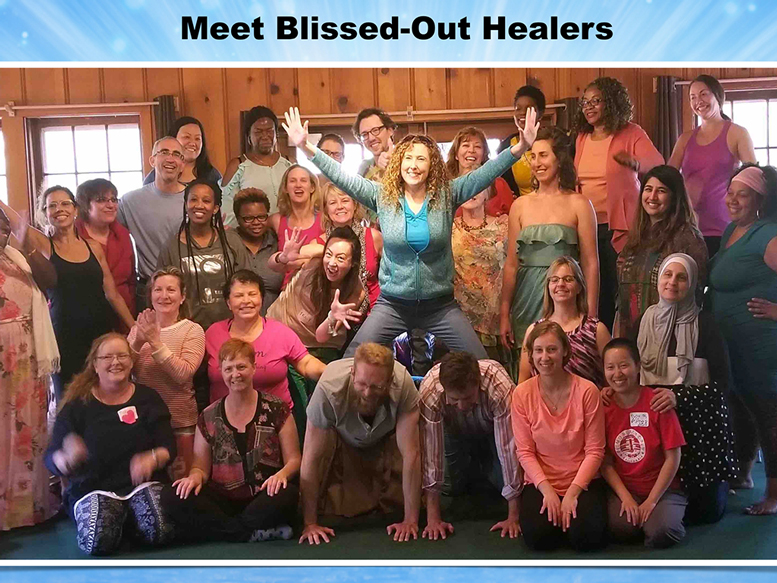
I’d be thrilled to introduce you to some really excited doctors, nurses, massage therapists, NPs, PAs who could mentor you. If you haven’t met any blissed-out health professionals, now is the time! Come to one of our retreats! Always have scholarships for pre-health professionals.
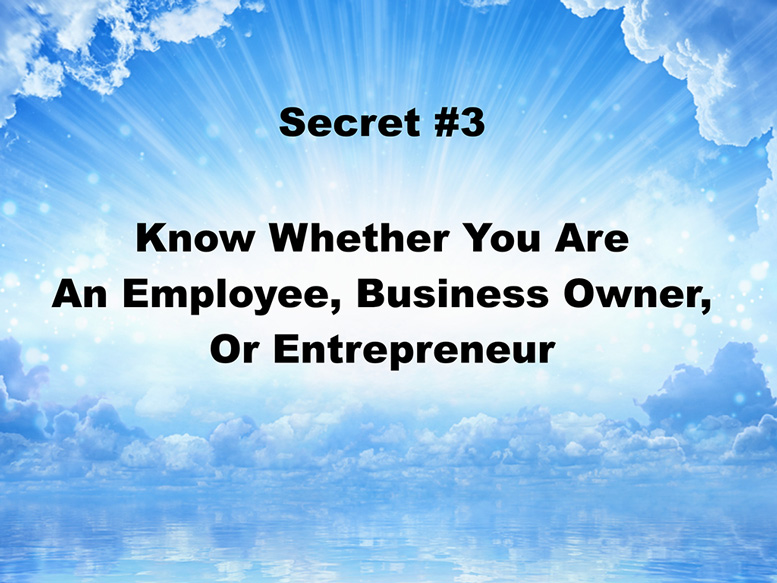
This is one of the most important concepts for you to understand about yourself. If you want to be a neonatologist because you saw a cool TV show about preemies; however, you have more of an entrepreneurial spirit, you may not be happy as a neonatologist trapped inside a hospital system as more of an employee. Make sure you are choosing the right profession for your personality.

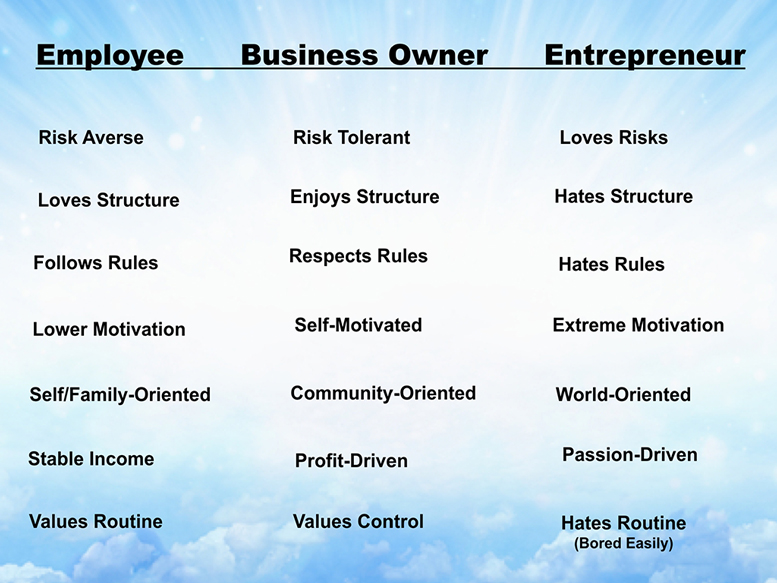
My suicidal crisis was totally cured when I stopped being an employee physician. I believe most physicians are by nature business owners or entrepreneurs so being an employee is not the natural habitat of a doctor. that’s why my life sucked! I launched my own clinic for the first time when I was around 29—just out of my first assembly-line job. I opened in the carport-turned-clinic at my house for all uninsured with sliding scale $14 to $100 visits. I was accepting trade and barter, organic carrot juice and handmade baby clothes for medical care (and I didn’t even have a baby). Then fast forward at age 36 I launched a second clinic designed entirely by the community through a series of town hall meetings. I invited people in my town to design their ideal medical clinic and collected 100 pages of written testimony, adopted 90% of what people wanted, and we launched one month later—with no outside funding! Still going 14 years later! Loving it.
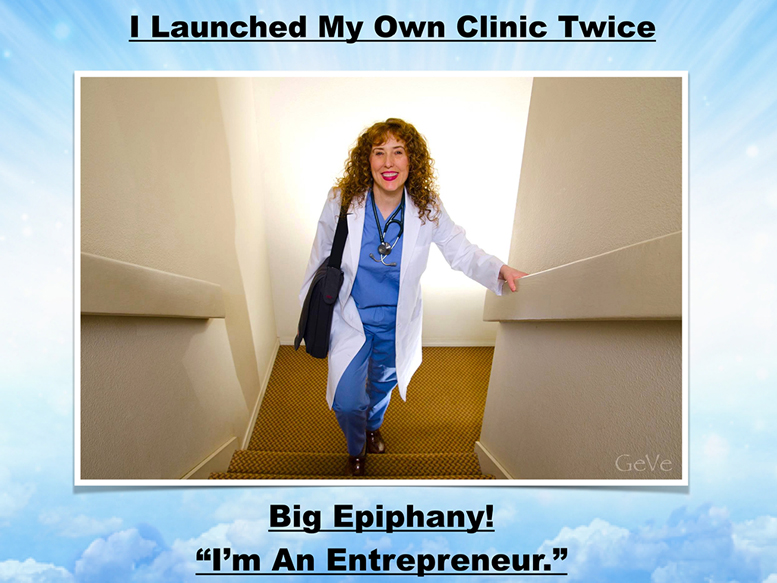
I finally figured out at age 45 that I am really an entrepreneur! Now life is really fun! Finally I’m doing what I was born to do. I’m running a suicide hotline for doctors and medical students while running a solo medical clinic designed by the community and teaching at medical schools all around the country.
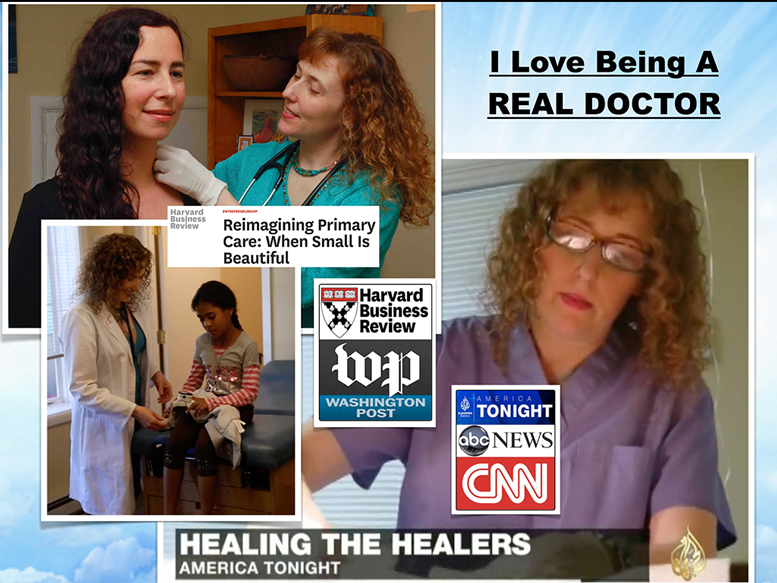
Now that I’m so happy as a doctor, TV crews and radio stations even from Europe are interviewing me about all that I’m doing for health professionals and to help patients finally get the kind of care they deserve. Here are some of the clips above. And look how much fun I’m having . . . When you are this happy, the news stations want to know why . . .
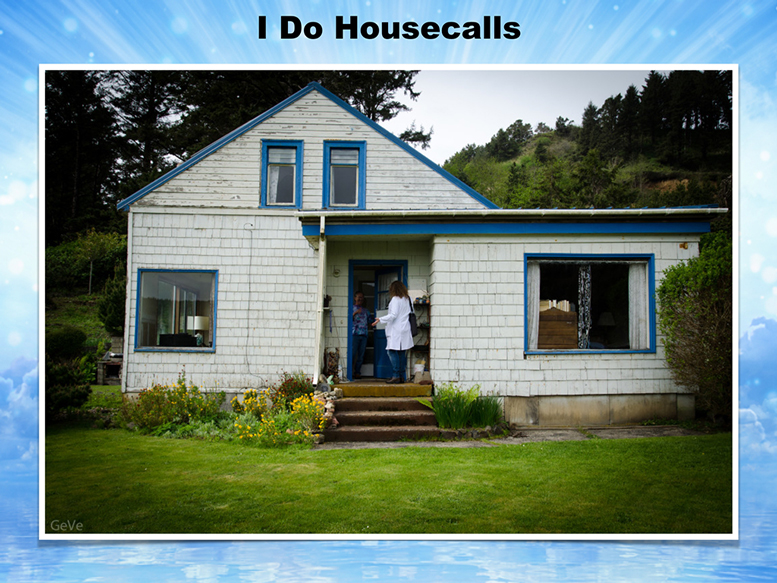
I love doing housecalls and look at my beautiful patients. It’s like a mutual admiration society. Here’s Johnny . . .
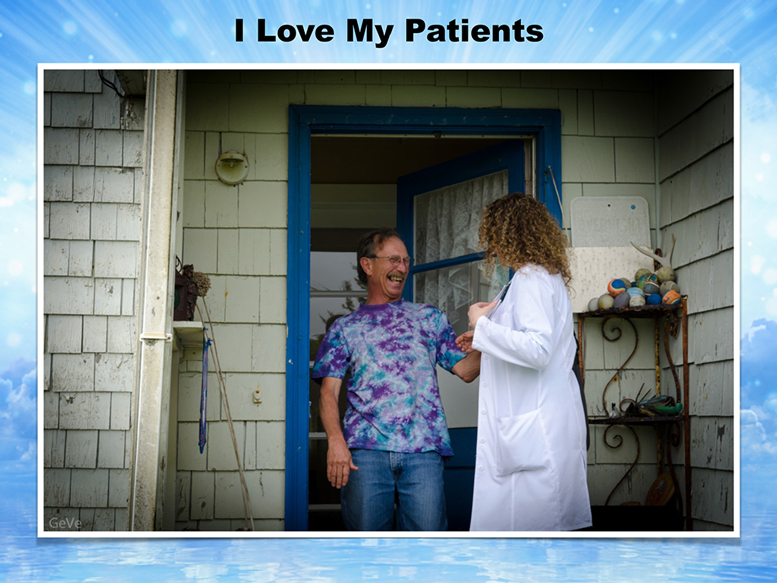
Here I am doing his exam and helping him on a 100-foot cliff overlooking the Pacific Ocean . . .
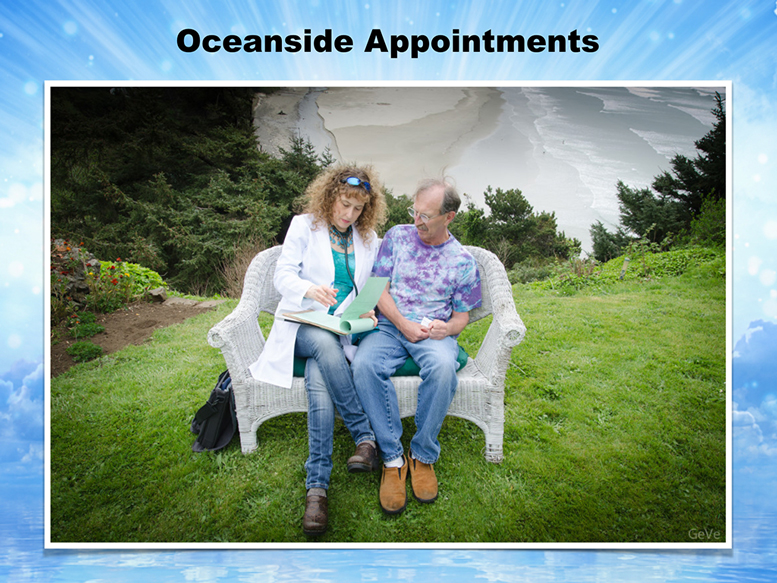
Love this man too! Such a great guy and so good to get to know people in their real lives. This is life outside of the cubicle. Your dreams are bigger than your cubicle. You gotta get out into the world and meet people.
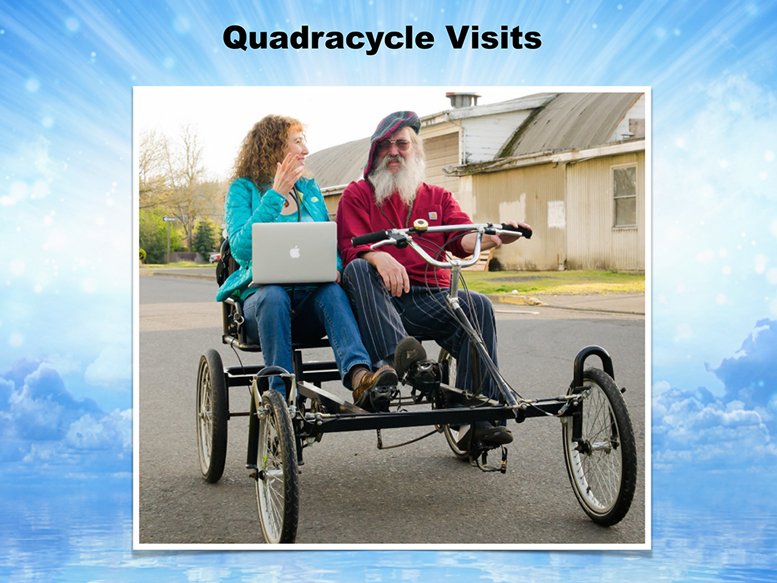
By the way, you can earn more money doing what you love without embezzlers stealing your money. There are no embezzlers in any of those photos above.
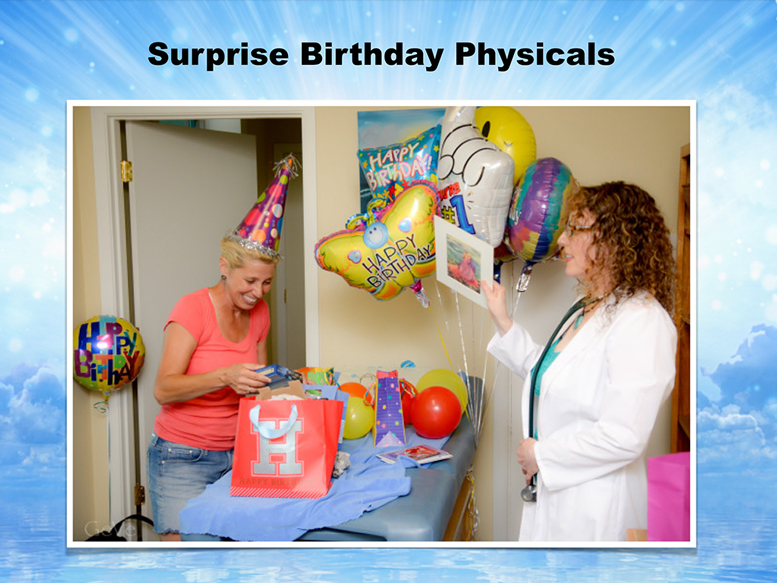
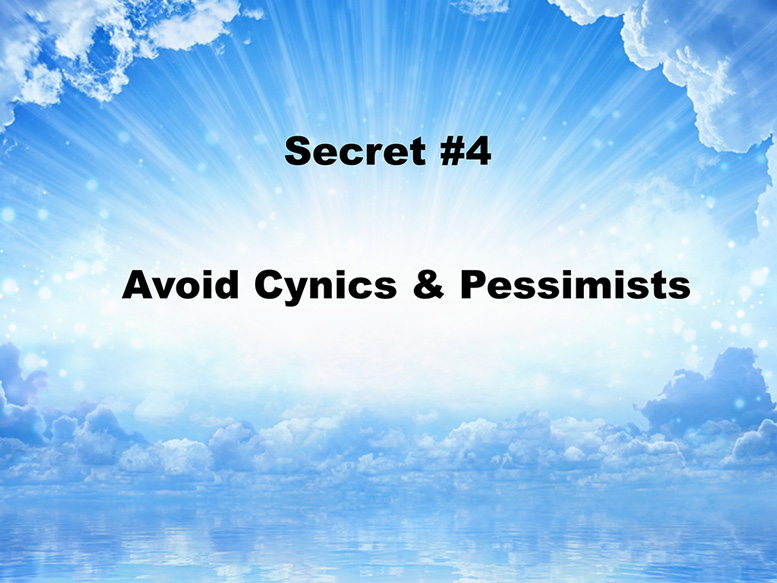
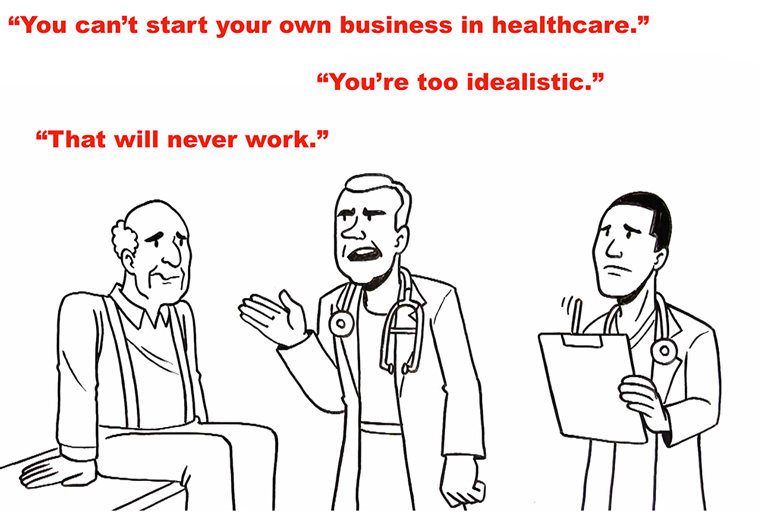
Has anyone here been told you are too idealistic? That is terrible. We need idealists. You are what the world needs now. Don’t let anyone talk you put of your ideals and your goals. I just want you to receive informed consent. I want you to make an informed decision about what field to pursue.
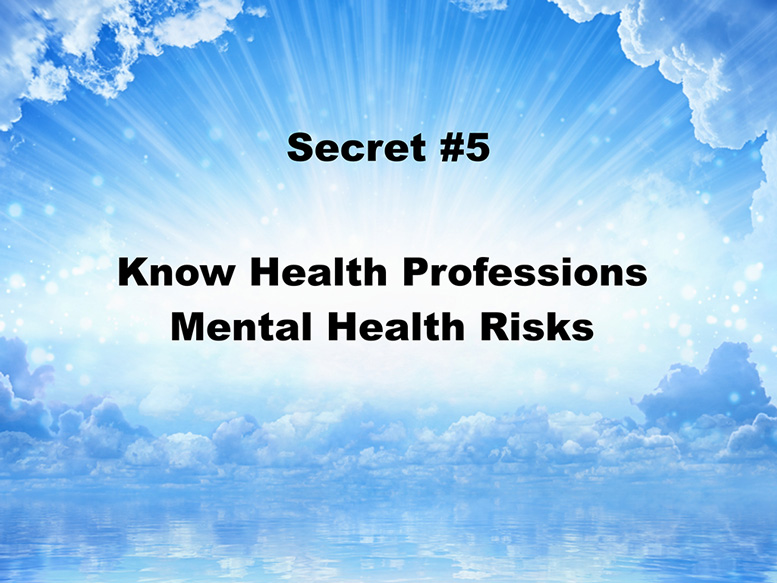
This is a wall full of photos of doctors and medical students who have died by suicide in my home business office. I know many of you have already had anxiety or depression, maybe even a suicide attempt. Please understand there are mental health risks associated with certain careers and you must know what these are so you can make an informed decision about your future.
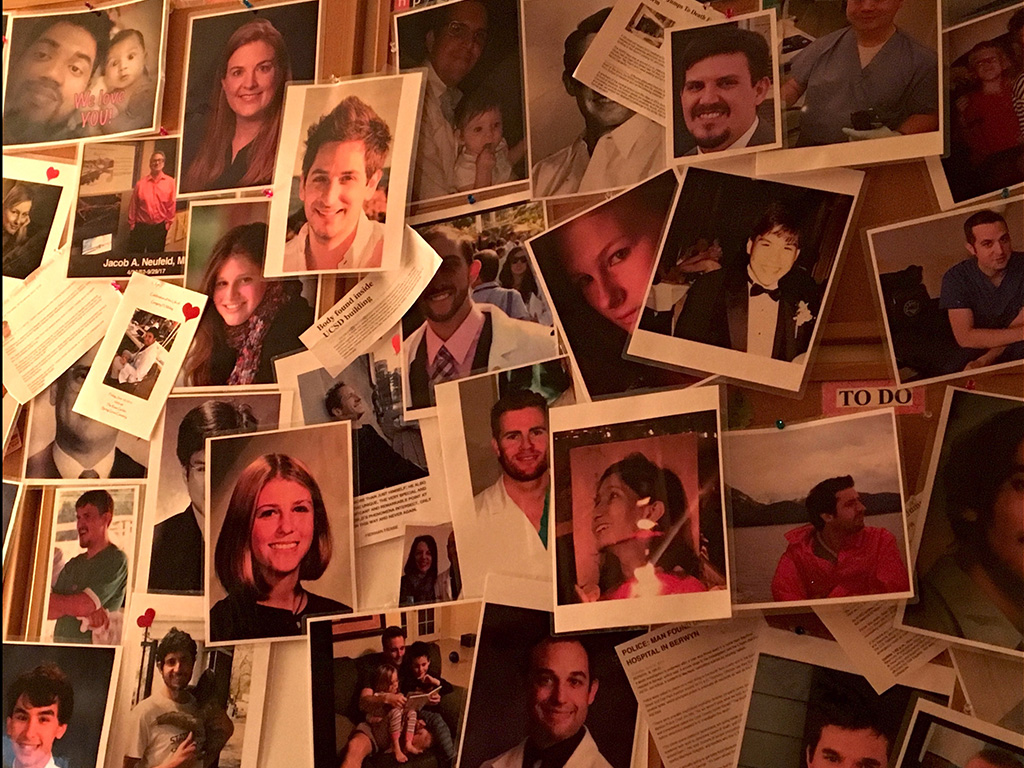
I don’t know why pre-health students are not receiving informed consent (other than we’ve lost our mentors and pre-health advisors who have not personally survived the health professional training you wish to pursue really have no first-hand experience to share regarding what happens in your professional training), yet it is a huge tragedy that students are not aware of the real risks of their education to their mental health.
Frustrated by this lack of consent I created this video a few years ago: Surgeon General Warning: Medical school may kill your child. Please know that I LOVE being a doctor. I just don’t love that young people are not receiving the real risks and benefits of their potential career choice. By the time they have second thoughts, they’ve already amassed hundreds of thousands of dollars of student loan debt.
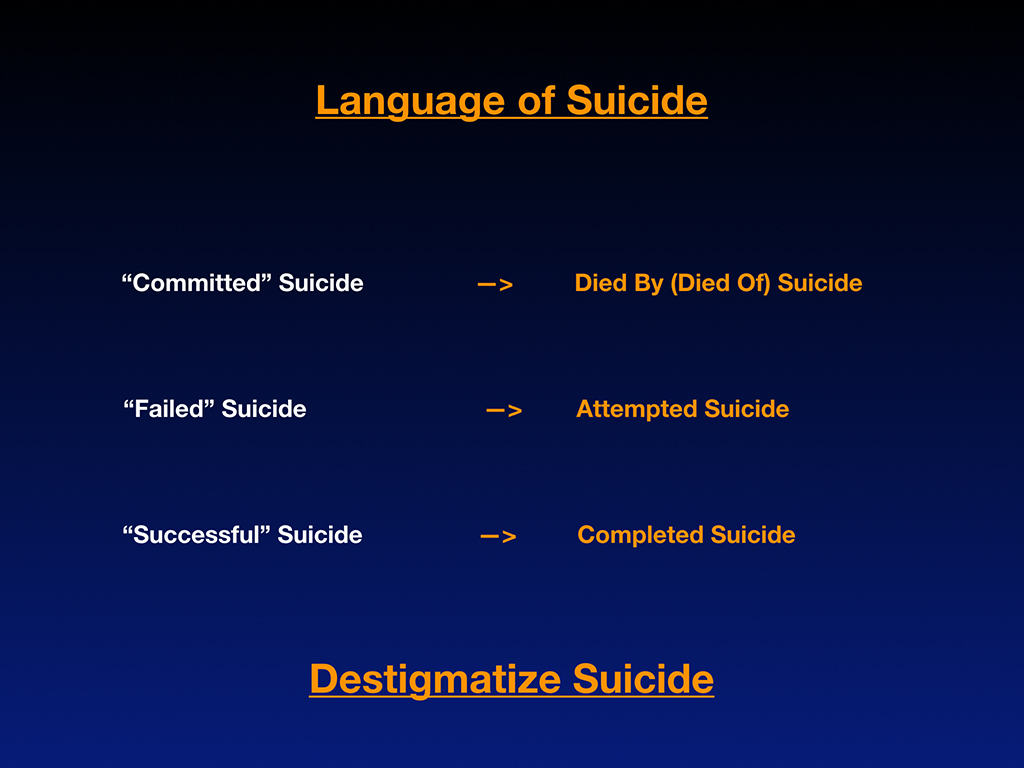
Again, we need accurate language that destigmatizes and enables real conversation on this taboo topic. Suicide is not a crime. It’s not like committing rape or burglary. A failed suicide is really success! You have survived. A successful suicide is not success. How is it successful when a young brilliant person is dead? That’s a completed suicide that should have never happened.
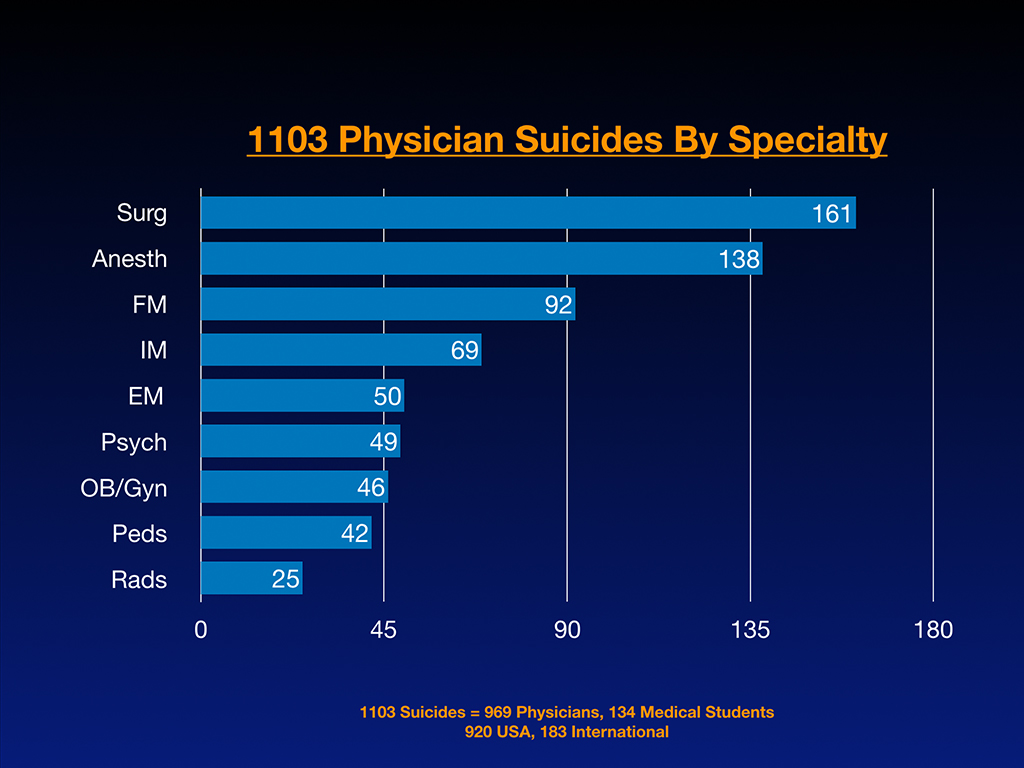
These few slides I pulled from another talk so you can see the graph of the numbers of suicides. Breakdown by location (USA vs. international) and some are medical students, most are doctors. I now have more than 1200 cases of suicides.
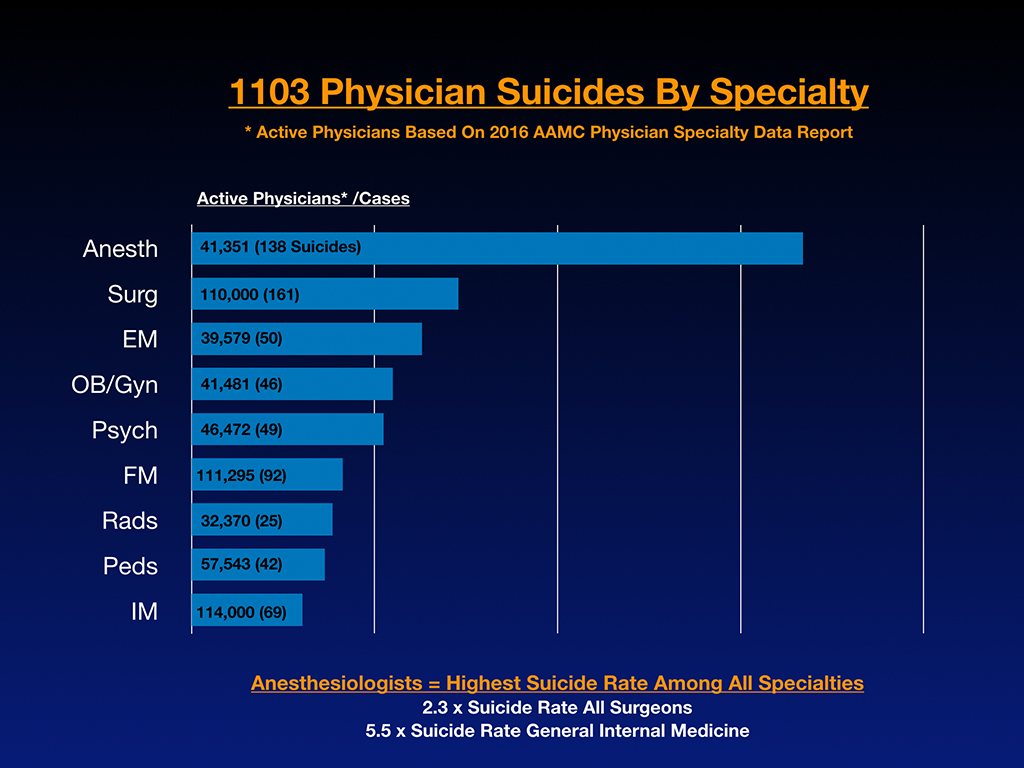
As you can see above anesthesiologists are off the charts, Especially male anesthesiologists at highest risk of any specialty and gender combination. So if you’ve already had a suicide attempt in high school and you have a problem with drug use now, anesthesiology would be a very high risk profession for you in regard to suicide risk. You should know this before you sign up for your student loans and start the process of your medical education.
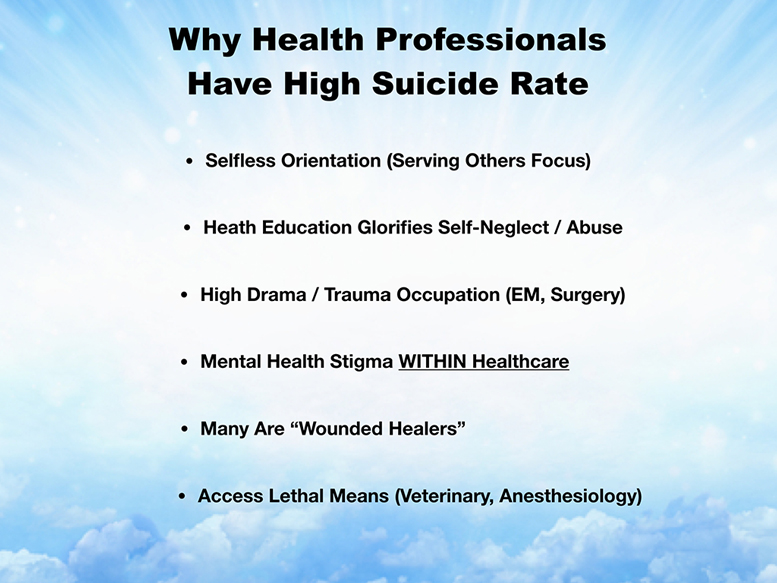
We can look at graphs and charts all day long. I want you to meet three of the people on my suicide wall. Here’s Matt Wittman—a promising young second-year medical student.
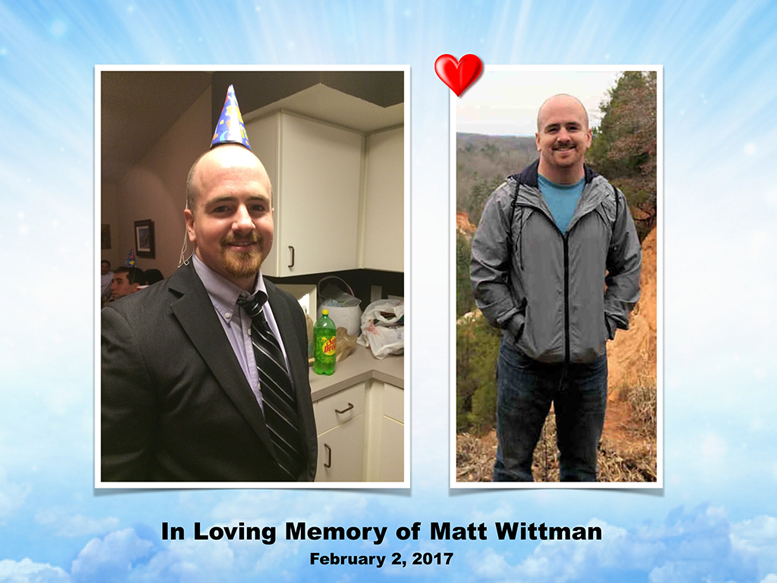
Meet Matt’s parents here. They are so excited at his college graduation ceremony. Actually they have a letter they sent with me that I am going to share with you today.
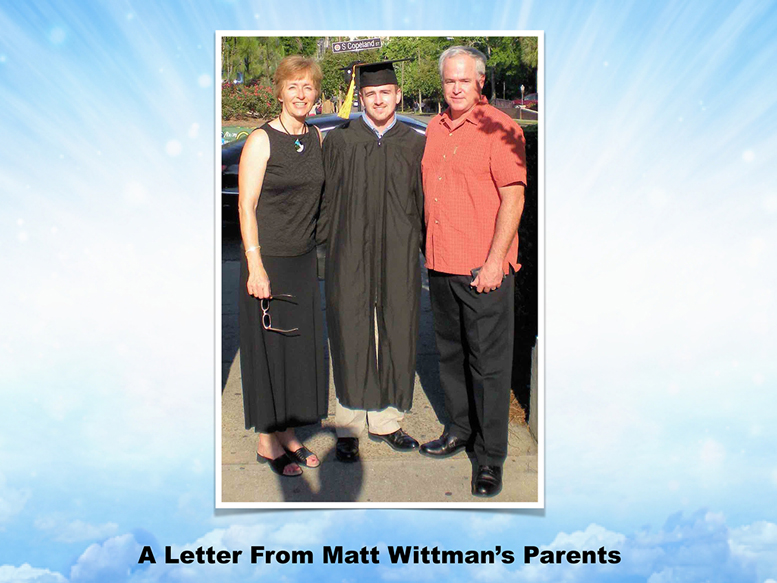
Dear Student:
I can’t imagine the stress and anxiety that you feel right now. However, I can certainly understand how you may feel, given the demands of medical school.
We lost our son, Matt, a second-year medical student, to suicide in February of 2017. He left this world in complete despair, hopelessness, and, in his mind, nowhere to turn for help. Unfortunately for all of us, he didn’t share these feelings with anybody: not his classmates, his church friends, or his parents. Only after we met the Dean of the medical college after his death did we realize he had failed his second class, and was in jeopardy of not being allowed to take Step one of the U.S. Medical Licensing Examination (USMLE) in the coming months. Also, we found out in his short time in medical school that he had amassed $100,000 in student load debt. All of these factors certainly weighed heavily on him.
About our son. ALL he wanted to be in life was a physician. From about the age of 13 that is all he wanted. He had a less than stellar MCAT, and he tried for three years to get into medical school. He was finally accepted due to his practical experience as a crisis line counselor and EMT. Unfortunately, he refused to even talk about a plan B as he was applying for the second and third year for a slot in medical school. He refused to discuss a plan B after he started school and was not doing well. In the summer before his death he announced he wasn’t going to call us on Sunday as was the practice in our family. In fact, he told us he might call us once in a few months. Those months went by with one call from him, then the dreaded call in February informing us of his suicide. Matt did not discuss his challenges and his apparent increasing depression with anybody. When we met his classmates at the memorial, they looked to us for information as to how and why this could happen; none of them had any idea. Same when we met with his church group and the folks he spent time with on the weekends; none of them had any idea that Matt was struggling and in such despair.
So why am I telling you the story of our son? I want you to know that there ARE people who LOVE you, people who WANT to hear from you, especially in tough times. I want to make sure you understand that WE are there for you! We may not know you, but we ARE there for you. We had so wished our son had confided in us regarding his struggles, if not just to give us the chance to give him some kind words and hope for his future. We were not so fortunate.
There are many resources for you if you are feeling the stress and anxiety that our son did. We would recommend, as we told my son’s classmates at his memorial, that you please call your parents, call your siblings–reconnect with them if you have been too busy to do so in the past. Share your thoughts with them. Talk to your classmates: You may be surprised to find some of them experiencing the same challenges. If you are active in a church, mosque, or synagogue, talk to your pastor or church elder–you may be surprised that you are NOT the first student with your challenges.
Seek out medical help. Our son was clearly depressed, but he kept it from everyone. He couldn’t overcome the stigma of a medical professional seeking mental health counseling. That stigma is OVER. I know Deans of medical colleges that are actively trying to get the word out to their students to not be afraid to seek counseling, as nobody should bear the burdens of medical school by themselves.
You are NOT alone!
Julie and Clay Wittman
Wittman@hotmail.com
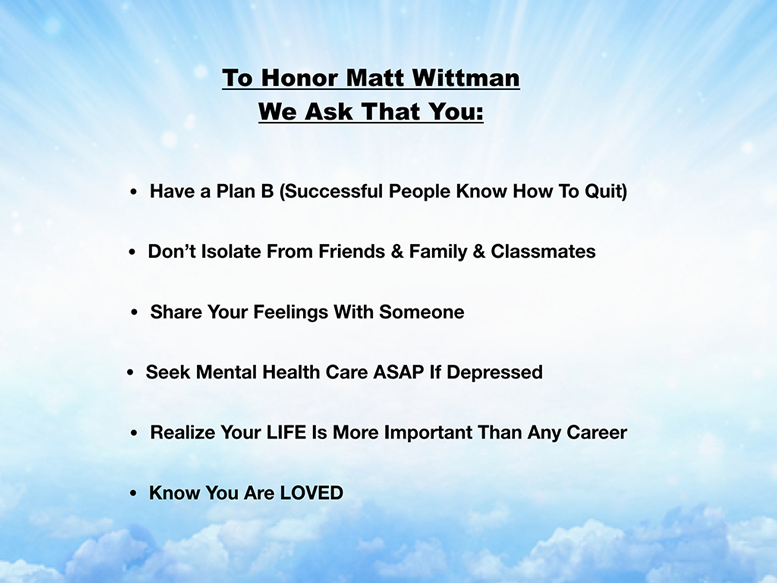
Meet Kaitlyn—a brilliant third-year medical student who died by suicide. I have a letter that I received from Kaitlyn’s mom in the year after her death that I wish to share with you all.
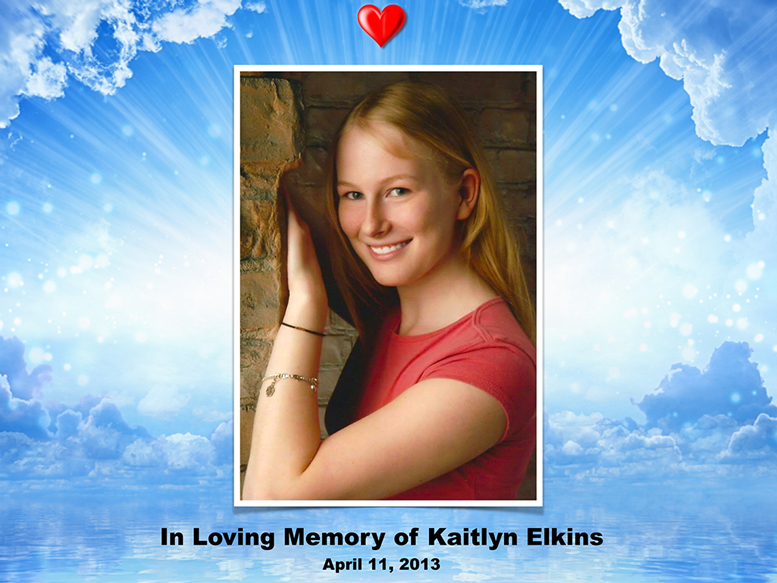
On 4-11-13, I lost my 23-year-old, brilliant daughter Kaitlyn Elkins to suicide. She was just beginning her third year of medical school at Wake Forest School of Medicine in Winston-Salem, NC. Saying we were and still are devastated is a great understatement, but another thing was the absolute shock as we thought she was one of the happiest people on this earth. She was sweet, brilliant, gifted in all academics as well as an artist, poet and writer, and marathon runner. And she never, ever in her whole life showed her depression to us (her parents) or her friends except she did tell her last boyfriend that she was depressed at times, but she told him we knew….we didn’t. I think she told him that so he would not tell us.
She was highly functional until the last day of her life, going to great lengths to plan her suicide and did it like a well planned school project. She was doing very well in med school. She left us a 2 page suicide note, as well as one to 4 of her friends and one to her sister. In it she told us she had been depressed all her life but hid it from us to protect us from it and to protect herself from it. She said she could not explain why she never sought help. She said she was exhausted from the weight of her depression and this is what made sense to her.
She always told us she loved medical school. I’m not sure, but since she said she had been depressed all her life, that maybe medical school added so much stress that it made her depression worse. I think she never asked for help due to the stigma and she was a perfectionist and did not want to be seen as weak. She had to know, as well as I know, that depression is an illness, not a weakness and can be treated. But for whatever reason, she did not seek treatment.
She was an introvert, but did have close friends, but I don’t think she had any in medical school. Whenever I asked if she had any friends in med school she said that no, that mostly everyone went their own way. I did not worry about this, but in hindsight I think she felt lonely and isolated.
I had no idea that depression and suicide rates were so high in med students as well as MDs until she died. I think as a child she must have suffered existential depression that so many gifted children suffer. Feeling alone because no one thinks as deeply as most people their age do, though I did not even know what existential depression was then, but only since I have researched since her death.
Med schools and the medical profession needs to put more emphasis on mental health of their students and colleagues. They need to make it so no one fears losing their license by admitting they need help and getting it.
Rhonda Elkins
Now, I became very very close to Rhonda Elkins (Kaitlyn’s mom) and we spoke on the phone often for about three months. She ended up writing a book about her daughter’s life. Kaitlyn essentially dies from loneliness in medical school. So many of her classmates told her mom, “I wish I would have got to know her. She seemed like such a sweet girl.” Well, the way medical school is set up it’s very hard to make close normal friendships that are not based on trauma bonds (friendships developing over codes and stillborns). The ultimate tragedy here is that Rhonda actually died by suicide because she was never able to recover from the loss of her daughter. So we have two suicides here in a family of four. I actually attended her funeral. Standing there with my hand on her casket next to the big mound of dirt in front of the headstone with that beautiful photo of her daughter.
I asked Kaitlyn’s dad (sweet man, not a mean bone in his body) after the funeral, “Do you think if your daughter worked at Starbucks that she and your wife would still be alive?’ He said, “Yes, medical school has killed half my family.”
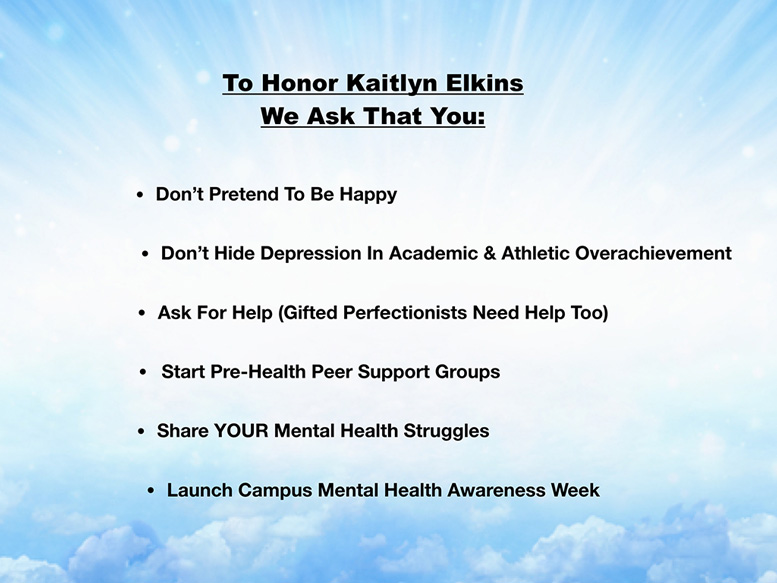
Meet this beautiful, compassionate man who survived a childhood with some exposure to trauma and violence. Yet he kept such a pure heart and soul, very empathic and loving. Though he was a bright guy, he became overwhelmed by the sheer volume of work and exposure to suffering in medicine (and was also in the military getting a scholarship through med school so having to do both medicine and military training). Julian hasn’t even been gone a year. I have a letter from is mom.
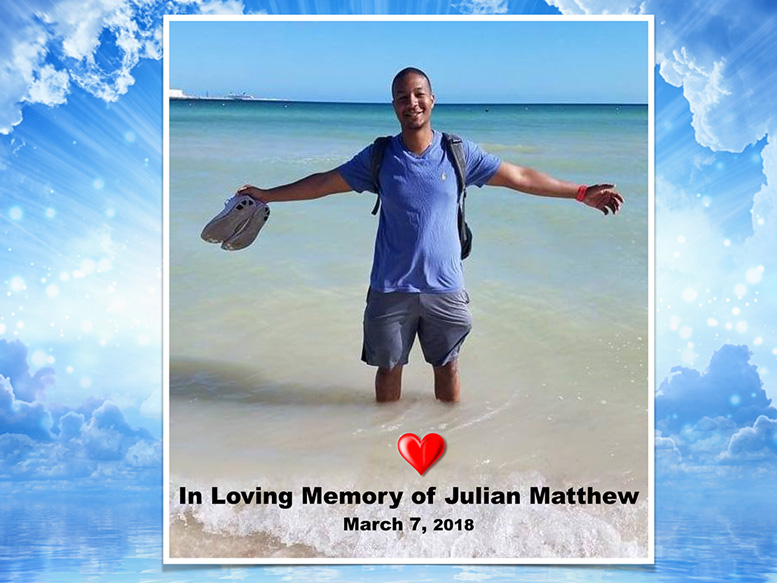
Dearest Beloved, whosoever will listen with an open heart: I’m especially extending these heart beats of love to all souls of humankind particularly to medical school students, faculty, residents, physicians, medical staff, nurses and support staff, US military personnel and all who serve others, please know beyond a shadow of a doubt, I don’t care what’s going on in your sphere, there is someone who genuinely cares when you hurt, feel lost or unimportant, when you feel like giving up.
In March 2018, my whole entire reality suddenly exploded Into something so unexpected, my thoughts and feeble words could could adequately describe. A test, then trial turned into unimaginable tragedy In my sphere. My beloved 26-years-young son, Dr. Julian-Matthew died by suicide. His then imminent promising future as a brilliant pediatric ear nose and throat specialist and surgeon dissipated into absolute nothingness early that morning after peacefully sleeping away with a tank filled with nitrous oxide never to return to planet earth again. His pride in serving as a United States commissioned naval officer abruptly ceased.
Could it be possible that just plain human decency, gratitude for the gift of life, respect for ourselves and others might be worth consideration once again? Perhaps a simple thank you, a smile, words of encouragement or just pure gestures of kindness suffice? What does this cost any of us except a little bit of a plentiful commodity that can never be bought or sold—and this is LOVE. Yep, a little bit of love and kindness goes a mighty long way—even a whole lifetime. We desperately miss him. My, my, my, we have many questions. Those questions remain unanswered for now. What if anything could we have chosen to intervene or prevent his Death? Could we just simply have said “l love you Julian-Matthew more? Could we have spent more valuable time with him just saying nothing and just be present in the moment with him?
0r could we have given him more money to help ease his personal and professional obligations forced upon him by educational institutions, the US Military, family, friends and even thieves who robbed him at gun point for a little money, decaying stuff and temporary material things? Could educational, military and other institutions have been more sensitive to his extreme deprivation, unreasonable demands for more time in the classrooms, operating rooms, long demanding hours, military demands humanly impossible to adhere to at times. Who really cares about anyone else unless it’s affecting them personally or someone they care for? Is money the only thing important to some versus the life, heart and soul of those chosen for the healing profession being cared for?
Thank you ever so kindly for allowing even me Just to love on you from a lady who deeply LOVES YOU! A hospice pastor Jac’Quette~Bo’nita Gatewood
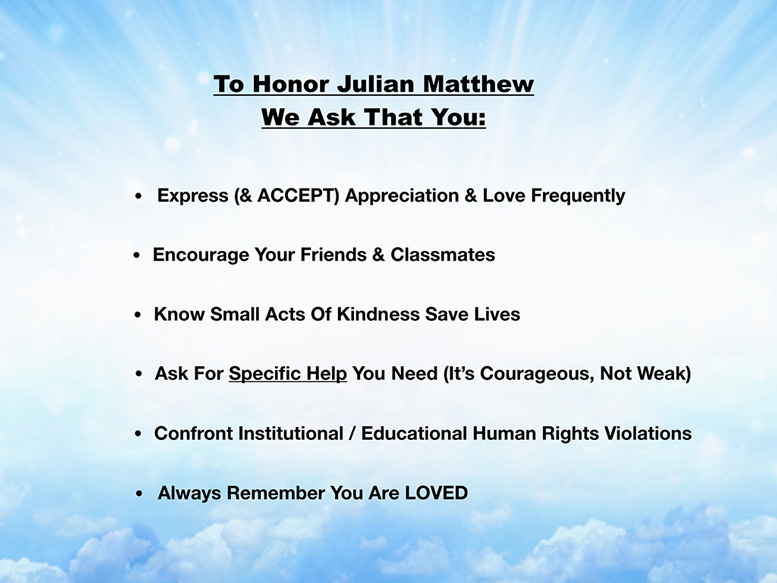
So how do we make sense of this? How could we have prevented these suicides. I survived my suicidal thoughts so that I can share what I believe would help us all. There is no one route to suicide though I see the trends that place us at higher risk. When ones dream is thwarted without a plan B or any help with career and loan repayment. Mental illness may be involved. Hiding your mental health issues is totally counterproductive to receiving help. Please stop hiding under forced smiles. We must learn to ask for help. And to ask for help from the right people. I know Julian went on a leave of absence and tried to get help with the structure of his medical education and all the impossible expectations. One person like Julian could not change the structure of medical education and the military in time. He succumbed to the pressure—total exhaustion. In my case, I asked my community for help. I was frustrated with assembly-line medicine to the point of total despair and suicide and so my patients and community helped design an ideal medical clinic. My cure for my suicidal thoughts and the path to my happily-ever-after story.
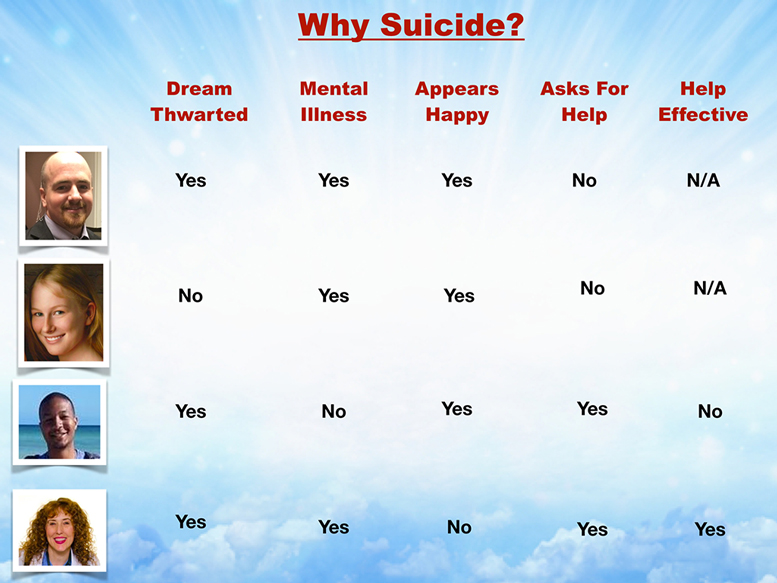
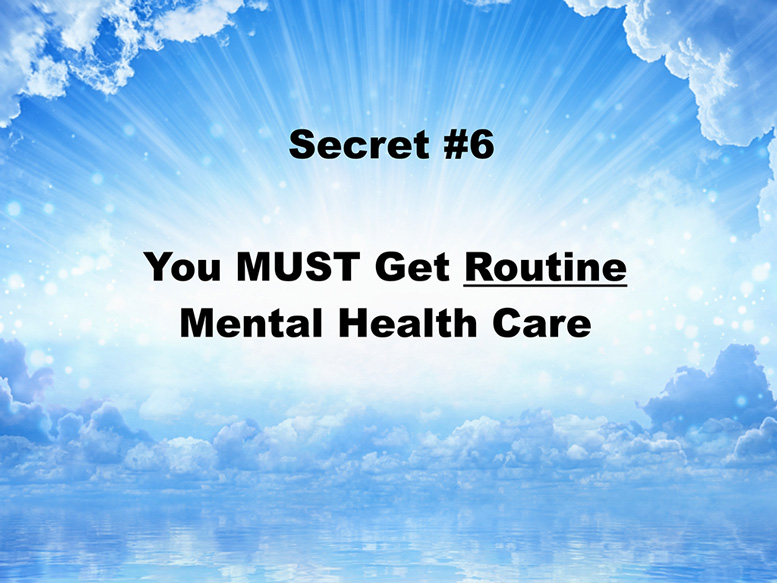
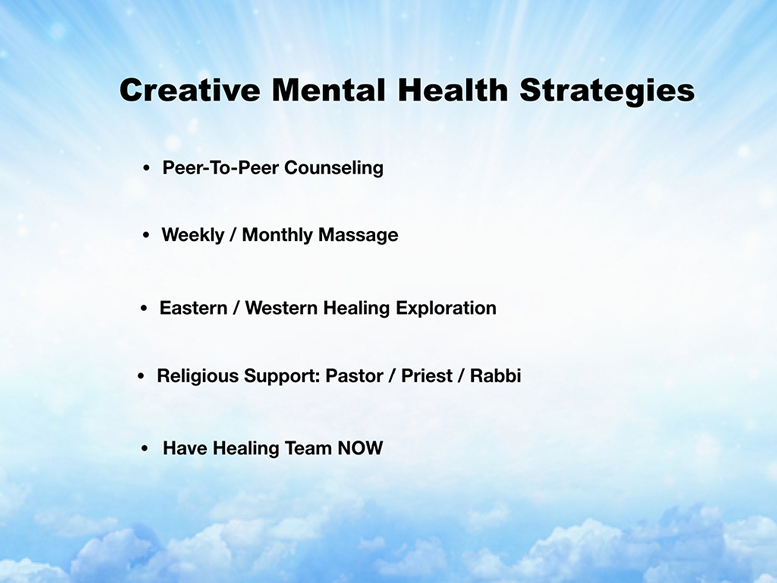
Please explore and find health professionals and healers who you can see DURING your training. People you can share your deepest thoughts, fears, frustrations, and desires with when you are in school. Healthcare is a team sport. You need a team to make it through. You can not see suffering and death all day long without help. Trust me.
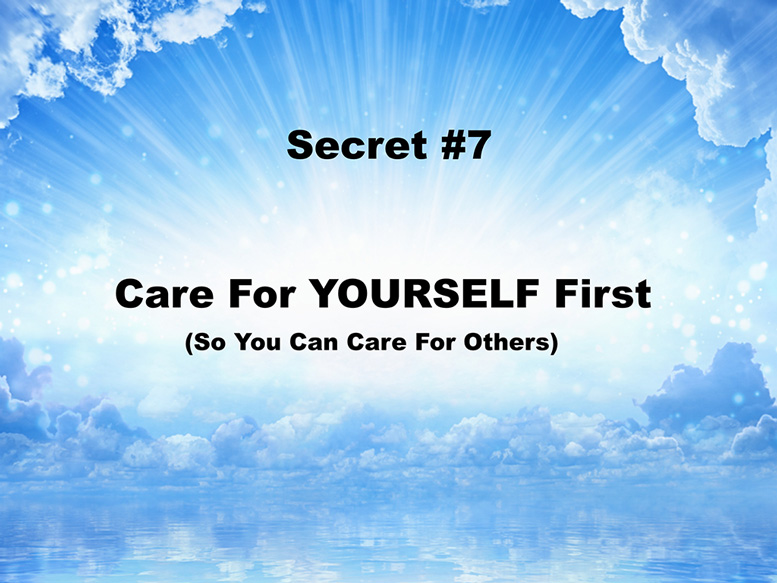
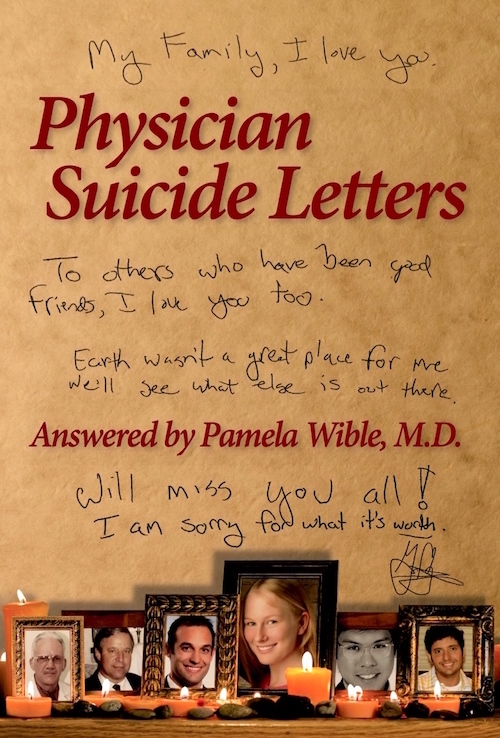
Please listen to the audio podcast of event to hear lively Q & A session at end:
After the keynote, I held three breakout sessions where I worked with students to help them with career planning. If you wish to receive help for your future career, please answer the following questions and then contact me here so I can help direct you into the right profession and specialty. A key strategy to preventing suicide (and disillusionment) among health professionals is to make sure you pursue the right profession for the right reasons and that your profession fits your personality and strengths.
1) What is your BIG dream? (like if you could be anything what have you always dreamed of being?)
2) How old were you when you decided you wanted to do #1?
3) What is your primary motivation for pursuing #1?
4) Are you by nature an employee, a business owner, or an entrepreneur?
5) Have you ever personally experienced any mental heath issues? (Or do mental health conditions run in your family?)
6) Do you have non-professional personal life goals that are important to you? (like having kids, getting married, owning an organic farm) Please share.
7) If you were sitting in front of a person who was living your exact dream, what questions would you have for him/her to help you along your journey?
Submit your answers here and I’d be happy to help you find your best path forward in healthcare (and maybe even introduce you to a great mentor).














Brava Pamela!
1.) my BIG dream is to honestly just live a comfortable life as a psychiatrist in Southern California or Austin and be happy.
2.) I have wanted to be a doctor for as long as I could remember. I remember being a little girl (around the age of four or five) and adults would ask me what I wanted to be and my first response was always to be a doctor. I have always felt it to be my calling in life.
3.) My primary reason for my dream to be a psychiatrist is because I grew up seeing mental illness affect my family, and later affect me personally. I have a passion for mental health and I want more people to be more knowledgeable about the issue.
4.) By nature I am an entrepreneur. I don’t like structure or rules, but I am very passionate and I love to take risks.
5.) Mine and my family’s mental illnesses are my main motivation for me wanting to become a psychiatrist. I have borderline personality disorder and had to be hospitalized due to thoughts of wanting to end my life. I was also sexually abused a couple years ago and just moved on as if nothing happened, but a couple of weeks ago I found out that my abuser abused an underage girl and only got probation. That is when my mental health started to spiral and I lost control and had to go to the hospital shortly after I found out. I was also diagnosed with chronic PTSD due to my abuse. Not only do I struggle with mental illness, but it runs in my family. My mom struggled with depression and anxiety all throughout my childhood, and I have many people in my family addicted to substances. Mental health issues are very prominent in my family which is why I want to be a psychiatrist.
6.) My main goal in life is to be happy, and my happy place is somewhere next to a body of water. If I could have a nice house next to a lake in Austin or a beach in California I feel like that would be true bliss.
7.) I understand why you make the decisions you do, but don’t let your mental illness take over your life and be the strong person you know you are.
2.What is your BIG dream? (like if you could be anything what have you always dreamed of being?)
My big dream is to become a medical doctor if i can i will specialize in caring for intellectual handicap with psychiatric problem.
2. How old were you when you decided you wanted to do #1.
About 10 years ago when i was working in the hospital and caring for patient as a nurse clinician.
3.What is your primary motivation for pursuing #1?
I will like to help sick people as i have always done as a nurse but in a different category . I will also want to devote my like to this effect.
4.Are you by nature an employee, a business owner, or an entrepreneur?
Presently i am an employee but will like to be a business owner if i have the opportunity.
5.Have you ever personally experienced any mental heath issues? (Or do mental health conditions run in your family?) I do not remember any person in my family with mental problem. I have not been diagnose with any mental issues.
6.Do you have non-professional personal life goals that are important to you? (like having kids, getting married, owning an organic farm) Please share.
I have a personal life goal to have my own clinic one day. Presently i am married with children.
7. If you were sitting in front of a person who was living your exact dream, what questions would you have for him/her to help you along your journey?
I will want the person to help me be an expert in my profession as a physician. I will also ask the person to help mentor me adequately to pass my board exam.
1) What is your BIG dream? (like if you could be anything what have you always dreamed of being?)
I’m a man of science, I just absolutely LOVE doing research. Publishing stuff, doing studies, all of that is fascinating to me!
2) How old were you when you decided you wanted to do #1?
Honestly I just noticed my love for science after going through a bit of med school, so I’d say 21-22.
3) What is your primary motivation for pursuing #1?
New discoveries and things that may contribute to improve patient care, people’s lives, make things more efficient.
4) Are you by nature an employee, a business owner, or an entrepreneur?
Entrepreneur.
5) Have you ever personally experienced any mental heath issues? (Or do mental health conditions run in your family?)
I have ADHD, haven’t tried suicide yet, but often have suicidal thoughts. No one in my family has any mental illnesses.
6) Do you have non-professional personal life goals that are important to you? (like having kids, getting married, owning an organic farm) Please share.
I’d love to adopt a kid, I don’t care about marriage. And I’d really like to live in a different country.
7) If you were sitting in front of a person who was living your exact dream, what questions would you have for him/her to help you along your journey?
I’d ask him/her how to get there, what their job is like, if they have a family or other obligations, and if they’re happy with their current life.
So did your mental health issues begin in med school/residency? Or earlier? And contact me here if you’d like to join our peer support calls.
1) What is your BIG dream? (like if you could be anything what have you always dreamed of being?)
As a kid I was born in El Salvador, grew up there and always dreamed of becoming a doctor. I would always perform fake surgeries and take care of patients using my dolls.
As I became a teenager that was something I wanted to pursue back home and I was admitted and ready to start med school at the age of 17, but at the time I was ready to start pursuing my medical dream to help others in the future , our family was able to bring us to the United States which was a living dream for me to come to the land of opportunities. I faced with challenges of being in a different country , not speaking the language at all and start all over again while working and studying (learning English and then start a program).
I didn’t stop I knew medical school would be more difficult to achieve, so I still had the dream of helping others and set a goal in my heart to become a FNP, to help others. I obtained my BSN and now just completed my FNP degree. My dream is helping people and opening a practice to provide care to others.
As I arrive
2) How old were you when you decided you wanted to do #1?
I was probably 5 years of age since the time I recall memories .
3) What is your primary motivation for pursuing #1?
My primary motivation is the desire to help others, help my family and help the community.
4) Are you by nature an employee, a business owner, or an entrepreneur?
I am by nature a business owner . I love business !
5) Have you ever personally experienced any mental heath issues? (Or do mental health conditions run in your family?)
I have never experienced any mental issues
6) Do you have non-professional personal life goals that are important to you? (like having kids, getting married, owning an organic farm) Please share.
I would love to start having kids and grow my family, we have the dream of living in the rural area in a farm with caws , chickens, and and all animals.
7) If you were sitting in front of a person who was living your exact dream, what questions would you have for him/her to help you along your journey?
I would ask him, how can we work together to make this work . Helping others is helping ourselves and the community .
I would ask her , how can this be done ?